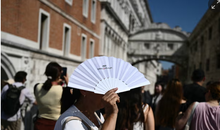
 Flash News
Flash News
Korça/ 40-year-old man jumps from fifth floor balcony, in critical condition
Croatia restores compulsory military service
Illegal constructions in Theth, Manja demands disciplinary proceedings against prosecutor Elsa Gjeli
Details from the murder of Renis Dobra, the perpetrators came with 2 Range Rover cars from Rrëshen
The Supreme Court left him in prison, Meta addresses the 'Constitution'

By Luciano Boçi
Throughout the war, Albanian nationalists had their eyes, mind and dreams connected to the allies. They were natural pro-Westerners and anti-Bolsheviks and proved this with their patriotic activity.
Although heartbroken because of the greater support that the English missions gave to the communists (Memorandum of Mid'hat Frashër and Abaz Ermenji: "This moral and material support of the allied missions to Bolshevism broke the balance to the detriment of the Albanian nationalist forces", after war they did not stop the fight against communism and never gave up hope for an anti-communist allied landing.
Many of them sacrificed and self-sacrificed themselves during the organization of uprisings and landings, supported by the Anglo-American services, with the aim of overthrowing communism.
Although many patriots, especially in the north, managed to incite foci of rebellion, among which Postriba stood out, their spread throughout the territory remained anemic.
Their suppression with extreme ferocity, and Kim Philby's role in the failure of the landings, several times delayed the Allied readiness for an intervention.
Although the anti-communists looked forward to it, it was ultimately delayed until the '90s.
"Inglizi" did not land, as Frashëri, Ermenji, Guraziu, Kupi, Kazazi, Matjani, Lleshanaku, Cali and the leaders of the North, etc., as well as the most emancipated part of the shipowners, wanted.
Despite the fact that Hoxha sowed terror throughout his reign with imprisonment, murder and shootings, the dream of the right and nationalists for freedom and democratic order was never extinguished.
But she always carried with her the challenging question:
Why didn't the allies land to save the country from dictatorship and restore democracy?!
There may be many answers, but among them one screams the loudest:
It was necessary for the anti-communist movement to be stronger, more organized and extended throughout Albania.
The Albanians themselves should have been the first strong opponents.
This would prompt the Allies to intervene.
"English" did not come because the people, with their silence for many reasons said and unsaid, mostly submitted to communism, losing their freedoms and rights in the process.
The Albanians thus signed one of their most terrible fates.
The minority that resisted faced the most inhumane crimes of the regime, without surrendering until the day of freedom came.
But it was a spring out of a long and grueling polar winter, delayed by the acceptance of evil.
If the reaction of the citizens was appropriate and strong, Hoxha would not have exercised his terror for 46 consecutive years.
The Allies would have intervened.
This was the key that failed and prevented the Allies from landing.
History clearly warns us.
Regimes are overthrown by civil disobedience and resistance and the strength of the opposition.
Without illusions that only "English" will fulfill our task, when he thinks that it is necessary to intervene, with or without diplomatic channels.
The time of the opposition and the citizens is now!
For those who expect only the "English", but also for the representatives of the "English", I am bringing to mind the reflection of the British officer Tony Simcox, stationed during the war near the liberation forces of Gani Kryeziu.
Worried by the politics of his country at the time, he wrote:
"Allowing the communists to kill, attack, or provoke their political opponents with our help is worse than if we had done this ourselves."
Don't forget:
Let's turn October 7 into the start of the battle that our glorious nationalists and patriots found impossible to complete, which will bring us and the "Englishman" with them.
Right and freedom are earned, not given!
Latest news


Malltezi: SPAK admits, we are in a process that began with Balla's false report
2025-07-10 22:34:16

Si të çliroheni nga bllokimet emocionale me anë të ushtrimeve
2025-07-10 21:57:24

Lala: Veliaj wanted to return as mayor
2025-07-10 21:40:46

VIDEO/ Brawl in Bolivian parliament, deputies physically clash
2025-07-10 21:20:30


Albania experienced one of the longest heat waves of the last decade
2025-07-10 21:01:09

The Government approves new procedures for declaring residence in e-Albania
2025-07-10 20:39:32

Koka: Northerners will not forget Edi Rama's racist operation in Theth
2025-07-10 20:18:24
The 3 zodiac signs that will be most affected by the 'Full Moon' of July 10
2025-07-10 20:04:49
New director of the National Center of Cinematography appointed
2025-07-10 19:51:12
Korça/ 40-year-old man jumps from fifth floor balcony, in critical condition
2025-07-10 19:40:19
'Tired Woman'/ The Syndrome That Affects Thousands of Women Every Day
2025-07-10 19:34:02
Jane Birkin's original Hermès bag sells for $10 million
2025-07-10 19:26:22

Britain-Ukraine agreement signed for 5,000 Thales missiles
2025-07-10 19:00:25
Fire in Zvërnec, flames endanger two hotels
2025-07-10 18:57:19
Croatia restores compulsory military service
2025-07-10 18:39:01
Spahia: The great truth of the strong accusation of the residents of Theth
2025-07-10 18:35:07


The Supreme Court left him in prison, Meta addresses the 'Constitution'
2025-07-10 17:57:21
New punishment with 'new' regulations
2025-07-10 17:54:46
EU translator fired over fears for Zelenskyy's safety
2025-07-10 17:45:37
'You are a policeman, but not God, take my soul', protest for Agon Zejnullahu
2025-07-10 17:41:21


Video/ Rama repeats the scenario, kneels before Meloni again
2025-07-10 16:56:31
He set fire to a plot of olive trees, 50-year-old man arrested in Shijak
2025-07-10 16:46:19

Rubio: US and Russia have exchanged new ideas for Ukraine peace talks
2025-07-10 16:36:20
Death of 27-year-old, Lipjan Police Commander Resigns
2025-07-10 16:21:28
Video/ An apartment burns in Tirana near the New Bazaar
2025-07-10 16:09:36


Jensila lights up the internet with her birthday greetings to Ledri
2025-07-10 15:42:08
They're full of pesticides! List of 12 products we need to be careful of
2025-07-10 15:31:04

Worker falls from scaffolding in Shëngjin, urgently sent to Trauma
2025-07-10 15:11:03
Malltezi: Within one day they seized my accounts, properties and shares
2025-07-10 15:01:23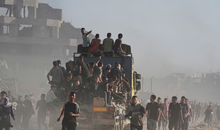
EU: Israel has agreed to more aid to Gaza
2025-07-10 14:55:19

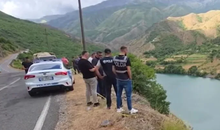
Murder of Reni Dobra, 23-year-old's vehicle pulled from the water
2025-07-10 14:29:23
Trump's tariffs on Brazil raise coffee prices
2025-07-10 14:16:07
Ursula von der Leyen survives no-confidence vote
2025-07-10 14:04:27

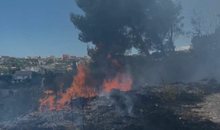
Fire in Lezha, flames near electrical substation
2025-07-10 13:32:24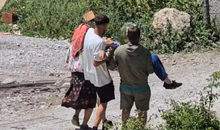
Residents clash with police in Theth, a woman faints
2025-07-10 13:24:38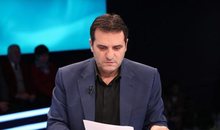
"Rama and Xanun"
2025-07-10 13:15:46

Zodiac signs most likely to get divorced in July 2025
2025-07-10 12:45:51
A scapegoat for an illegitimate Republic
2025-07-10 12:35:02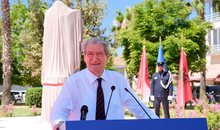
"He has devastated his own nation"/ Berisha: Rama imprisons his opponents!
2025-07-10 12:26:54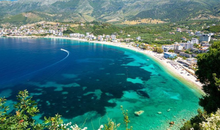

Albanian man injured with knife in Italy
2025-07-10 12:08:55
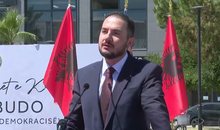
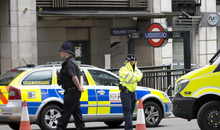
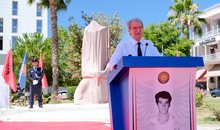

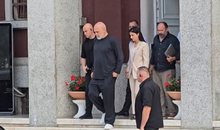

23-year-old in Mat drowned with rope, 4 suspects are being held
2025-07-10 10:58:53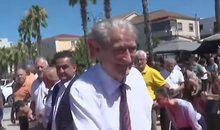
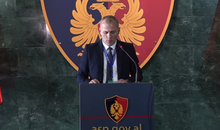
After the dismissals, the new director of the Shkodra Police is appointed
2025-07-10 10:30:10
BIRN: Rama's action for public spaces, a repeated spectacle
2025-07-10 10:29:11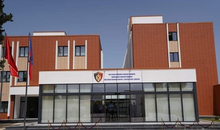
Action in Theth, Shkodra Police leaders dismissed
2025-07-10 10:16:28
Fatal accident on the Tirana-Durres highway
2025-07-10 10:01:58
The incinerator does not exist, but the government continues to increase funds
2025-07-10 09:51:45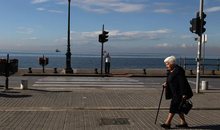
Albania is aging at a rapid pace! 30% of the population is over 60 years old
2025-07-10 09:46:23
End of an era, Modric says 'goodbye' to Real Madrid
2025-07-10 09:36:09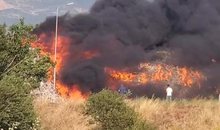
Mount Dukat has been on fire for 6 days, residents request air intervention
2025-07-10 09:27:24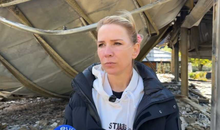

"Poverty on the rise"/ DW: Many people in Germany are not getting paid
2025-07-10 09:08:06
Horoscope, what do the stars have in store for you today?
2025-07-10 08:51:59

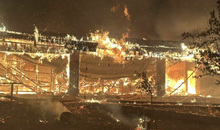
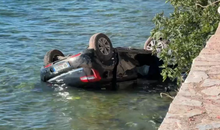

The scorching heat returns, the thermometer climbs to 40°C
2025-07-10 07:58:52
Morning Post/ In 2 lines: What mattered yesterday in Albania
2025-07-10 07:46:35
Tourist operator in Theth: They are demolishing our houses without warning
2025-07-09 22:54:57

Trump and Israeli commander warn: Gaza ceasefire could be near
2025-07-09 22:13:21
Fire in Elbasan Landfill, pedagogue: It is a cancer and environmental crime
2025-07-09 21:54:47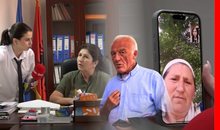
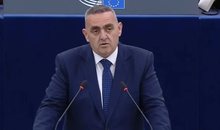

Dangerous summer, number of snake bites increases
2025-07-09 21:22:13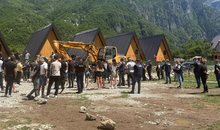
Berisha appeals again: Stop state terror against the residents of Theth!
2025-07-09 21:15:36
'Kissing disease' virus linked to several forms of cancer
2025-07-09 21:04:44
Malltezi confesses after release: Justice has become a political weapon
2025-07-09 20:51:48
Vokshi: Albania's EU integration has stalled due to lack of free elections
2025-07-09 20:37:21